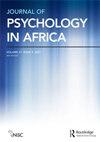美与物质性:中国大学生自我感知外表吸引力与物质性的主观社会阶层中介作用
IF 0.8
4区 心理学
Q3 PSYCHOLOGY, MULTIDISCIPLINARY
引用次数: 0
摘要
本文章由计算机程序翻译,如有差异,请以英文原文为准。
Beauty and materiality: Subjective social class mediation of self-perceived physical attractiveness and materialism in Chinese college students
This study examines the relationship between self-perceived physical attractiveness and materialism, and the mediating role of subjective social class in that relationship. Participants were 375 Chinese college students (female = 79%; sophomore = 29%; mean age = 21.99; SD = 2.75) who completed a series of questionnaires. Following hierarchical regression analysis and bootstrap analysis, results indicated self-perceived physical attractiveness positively predicted subjective social class and materialism. Subjective social class played a mediating role between self-perceived physical attractiveness and materialism. When self-perceived physical attractiveness is low, accompanied by a decrease in subjective social class, the level of materialism will tend to increase significantly; when self-perceived physical attractiveness is high, accompanied by a rise in subjective social class, the level of materialism will decrease significantly. These findings are explained by China’s “face” culture through which beauty is a symbolic capital for maintaining self-identity reputation and status, consistent with the views of the social capital and the functional theory of materialism. Accordingly, equitable college student cultivation and development services should support college students for healthy physical aesthetic standards and materialism values regardless of self-perceived physical attractiveness or social class.
求助全文
通过发布文献求助,成功后即可免费获取论文全文。
去求助
来源期刊

Journal of Psychology in Africa
PSYCHOLOGY, MULTIDISCIPLINARY-
CiteScore
1.70
自引率
16.70%
发文量
62
期刊介绍:
Findings from psychological research in Africa and related regions needs a forum for better dissemination and utilisation in the context of development. Special emphasis is placed on the consideration of African, African-American, Asian, Caribbean, and Hispanic-Latino realities and problems. Contributions should attempt a synthesis of emic and etic methodologies and applications. The Journal of Psychology in Africa includes original articles, review articles, book reviews, commentaries, special issues, case analyses, reports and announcements.
 求助内容:
求助内容: 应助结果提醒方式:
应助结果提醒方式:


